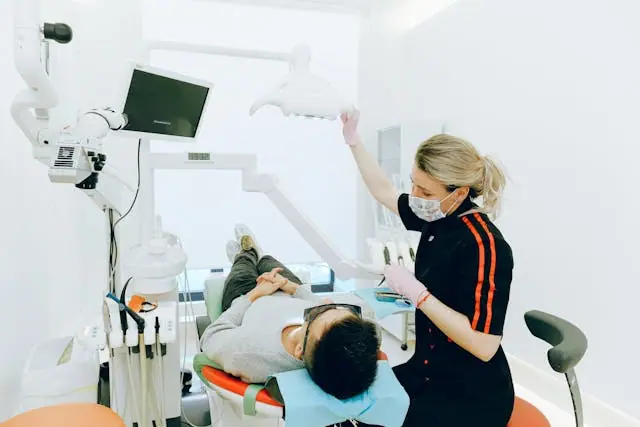
12 Essential Health Checkups for Men
Navigating the complexities of daily life, men sometimes overlook the significance of regular health screenings. These checkups for men serve as a line of defense against potential health issues, enabling early detection and management. With the right approach and knowledge, men can take proactive steps towards maintaining optimal health. This guide aims to shed light on essential health screenings for men, ensuring they are well-informed and prepared to take charge of their health journey.
Blood Pressure Screening
High blood pressure, often silent and symptomless, can lead to significant health complications if left unchecked. Regular screenings, ideally once a year, help monitor blood pressure levels, allowing for early intervention and management strategies. Simple lifestyle adjustments or medication, when necessary, can control high blood pressure, reducing the risk of related health concerns.
Testosterone Level Check
Testosterone levels naturally decline with age, but significant drops can affect health and well-being. Symptoms of low testosterone include fatigue, mood changes, and decreased muscle mass. Resources like Huddle Men’s Health specialize in diagnosing and treating low testosterone, helping men regain their vitality and improve their overall health.
Cholesterol Check
Monitoring cholesterol levels is essential, especially for men over the age of 35 or those at increased risk due to lifestyle or genetic factors. Elevated cholesterol can contribute to heart disease, making regular health checkups vital for men. Dietary changes, physical activity, and medication can manage high cholesterol, promoting heart health. Moreover, understanding the difference between LDL (bad) cholesterol and HDL (good) cholesterol can guide dietary choices. Regular monitoring can also motivate lifestyle adjustments that significantly impact overall well-being.
Diabetes Screening
Early detection of diabetes or prediabetes opens the door to management through diet, exercise, and medication, helping prevent more severe complications. Frequent screenings become even more critical as age increases, as the risk of type 2 diabetes escalates with age. Adopting a proactive approach towards glucose monitoring can significantly alter the course of one’s health trajectory.
Vision and Hearing Tests
Often overlooked, regular vision and hearing assessments are key to detecting changes that can affect quality of life. These screenings should be part of routine health checkups, ensuring that any necessary corrective measures, such as glasses or hearing aids, are identified and utilized for men. Vision tests can also detect early signs of conditions like glaucoma, while hearing tests can uncover gradual hearing loss, allowing for timely intervention. These sensory screenings play a significant role in maintaining one’s independence and quality of life.
Dental Checkup
Oral health is a vital component of overall well-being. Biannual dental visits are recommended for cleanings and checkups to prevent dental issues like cavities and gum disease. Maintaining good oral hygiene supports not just dental health but also general health. Additionally, regular dental checkups can detect early signs of oral cancer and other diseases. Good oral health practices can also reduce the risk of developing heart-related conditions, highlighting the interconnectedness of oral health and overall health.
Skin Health Check
Regular skin examinations are important for spotting any unusual changes or growths that could indicate skin issues. A dermatologist can perform a thorough check and provide advice on how to protect the skin from damage, including the importance of sunscreen and avoiding excessive sun exposure. Early detection of skin issues is extremely important for effective management. Skin checks can also educate individuals on the various types of skin cancer and the significance of early detection. Establishing a routine for self-examination can empower men to notice changes in their skin early and seek professional evaluation promptly.
Body Mass Index (BMI) and Obesity Screening
Obesity is a leading risk factor for several health conditions, including heart disease and diabetes. Regularly monitoring BMI can provide insights into one’s health status and prompt necessary changes in diet and exercise routines. A healthcare provider can offer personalized advice on achieving and maintaining a healthy weight. Understanding one’s BMI helps in setting realistic health goals and monitoring progress. It also helps in recognizing the potential need for more intensive interventions or support.
Nutritional Assessment
A nutritional assessment can identify deficiencies that may impact health and performance. Adequate intake of vitamins and minerals supports body function, energy levels, and disease prevention. A healthcare provider or a nutritionist can recommend changes to diet or supplements to address any deficiencies. This assessment is particularly valuable for tailoring a diet plan that meets all nutritional requirements, ensuring that men can maintain optimal health and vitality.
Physical Activity Evaluation
An evaluation of one’s physical activity levels can help identify areas for improvement. Healthcare providers can offer guidance on safe and effective exercise routines tailored to individual health needs and fitness levels. This evaluation encourages a lifestyle that incorporates movement, highlighting the importance of regular exercise in preventing health issues and enhancing life quality.
Mental Health Screening
Mental health is as important as physical health. Screenings for stress, depression, and anxiety can uncover issues that might otherwise go unnoticed. Seeking support from mental health professionals can lead to effective strategies for managing mental health, contributing to overall well-being. Early detection and intervention can significantly improve life quality, emphasizing the need for routine mental health evaluations as part of comprehensive health care.
Sleep Quality Assessment
Good quality sleep is foundational to health. Screenings for sleep disorders, such as sleep apnea, can be life-changing. Addressing sleep issues can improve energy levels, mental clarity, and physical health. Healthcare providers can suggest lifestyle changes or treatments to improve sleep quality.
Read More: 6 Tips to Get Healthy Stay Healthy from Head to Toe
Wrapping Up…
Maintaining your health is a continual process, not a one-time event. By prioritizing regular health checkups, you’re not just taking care of yourself, but also setting a positive example for your loved ones. Remember, prevention is key, and early detection can make all the difference in maintaining a healthy and fulfilling life. So, don’t wait until you’re feeling unwell to see a doctor. Schedule those checkups, stay proactive about your health, and enjoy the peace of mind that comes with knowing you’re taking the necessary steps to live your best life. Here’s to your health and well-being!


